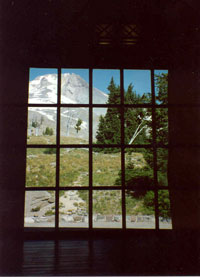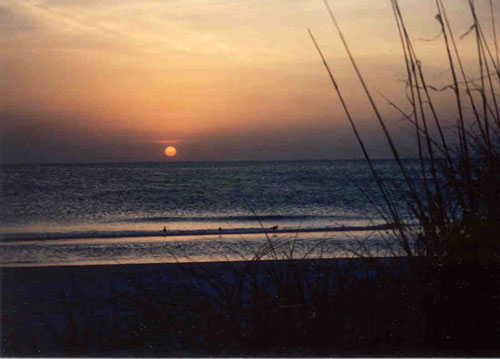Essay by Nikki Stern
Learning Not to Over-Think
When I decided to pursue a full-time writing career, I sought structured guidance. My previous experience had been in journalism and public relations; I wanted to expand my scope. So I signed up for a writing workshop. Actually, I ended up in two, and they were as different as could be.
 The first was an online course offered by the New York Writers’ Workshop, which I joined in January of 2008. My class, a sort of Fiction 101, met in a chat room over a seven-week period. Our weekly assignments involved mimicking the style of a given short story in order to experiment with different kinds of narrative voices.
The first was an online course offered by the New York Writers’ Workshop, which I joined in January of 2008. My class, a sort of Fiction 101, met in a chat room over a seven-week period. Our weekly assignments involved mimicking the style of a given short story in order to experiment with different kinds of narrative voices.
We were also required to write critiques of our classmates’ assignments. The focus was on the elements that went into constructing a piece of fiction. The work was intellectually stimulating and probably useful on some level. I finished every assignment, working diligently, even creatively at times. But I didn’t feel an emotional connection to most of my work.
After I’d completed my first nonfiction book, I signed up for a second workshop in 2010, an all-day affair that consisted of spontaneous writing prompts. This was a very different approach and far more valuable to me. In my very first attempt to write without hesitation, I pinpointed my writing issues:
I think too much. I think, perhaps, as an exercise I’m already familiar with, having been encouraged to think as a child and having demonstrated a predilection for thinking. But thinking can so easily shade into over-thinking.
Some of the workshop participants were people I’d met through the online blog community of Open Salon; others were new to me. Kate Hymes, our leader that day, is a poet and educator in Duchess County, New York. She leads workshops for the Walkill Valley Writers and follows a practice developed by Pat Schneider, the founder of Amherst Writers and Artists.
These gently guided sessions were revelatory. They focused on writing intuitively, one might even say impulsively. The feeling was akin to being thrown into the deep end of the pool and instructed to swim—with one important caveat: Someone was there to keep me afloat and, when necessary, pull me onto dry land.
Maybe I have a sense of myself as a vessel, an imperfect one, that both permits and restricts my—our―existence. I can’t tell you how many times I’ve inveighed against the limitations of my body….
 Kate used various prompts for each exercise—a poem, a phrase, or a picture. We had a predetermined amount of time to write down what the prompts inspired. We then read aloud and commented on each other’s work.
Kate used various prompts for each exercise—a poem, a phrase, or a picture. We had a predetermined amount of time to write down what the prompts inspired. We then read aloud and commented on each other’s work.
She asked us not to critique or suggest improvements; nor were we to personalize our comments (“your writing needs” or “I’d try this”). We were to listen carefully and to focus on the strengths of the pieces.
I call this kind of writing filter free: no time to edit, to censor, to over-think.
During the listening portion of the exercise, I paid attention in a new way, immersing myself in the stories of others, letting the words move me, hearing them as their authors intended them to be heard—even though we may have begun by writing without any intentions at all.
Somewhere along the line, I became someone who exists within her body as if it is a prison. I’m someone or something looking out from behind bars.
Writing without intention or expectation: That’s the truly liberating part. What do I want to say? What would happen if I simply tried to say it, if I wrote it down, all jumbled, a mix of inelegant phrasing and unwittingly artful phrases, infused with whatever memories or experiences that have shaped me, whoever I am and hope to become?
I realized I could do that. I could abandon the role of safely removed observer.
In one exercise, we were asked to choose an image from among a pile Kate had spread out on the floor. Many were of fathers and sons or fathers and daughters. I’d written a Father’s Day post on my blog not long before, but I wanted to try something new.
I flipped over a photo and saw a sliver of another image. Possibly, it was another father holding his daughter. Quite likely, I wasn’t “supposed” to draw inspiration from the back of a photo. What was visible was an arm; just an arm. I grabbed my laptop, glanced at the clock, and got to work.
What I wrote then is a metaphor for everything I’m trying to accomplish as a writer and against which I struggle. I didn’t eliminate the obstacle, but I surmounted it, and I experienced a wave of pure joy so fierce I wondered if I could withstand it.
This is my arm, my leg, my head, my hair. We are one. I can smell, I can see, I can hear, I can notice. This is what it means to exist in the moment and it brings with it a certain level of peace, which is, after all, what I really want. Peace—mind, body, spirit, one.
Correction, June 2013: Kate Hymes's last name is now correctly spelled.
Try It Yourself: Go Filter Free
The following writing exercise is based on workshop techniques developed by Pat Schneider, founder of Amherst Writers and Artists. I've included photos in this piece, taken by my late husband James Potorti, that you might want to use as writing prompts.
Sample Exercise:Using one of the images here or a photo of your own, write a 500-word essay on a strict time clock. Set your clock for 25 minutes or less. Make sure you adhere to the word count: 500 words practically ensures no reworking or editing.
Art Information
- “Window,” “View,” and “Longboat Key” by James Potorti (© Nikki Stern); used by permission
 Nikki Stern is editor-in-chief of Does This Make Sense, a site for critical thinkers. She blogs at 1 Woman’s Vu and contributes to many online venues. Her work has appeared in the New York Times, Newsweek, USA Today and Humanist Magazine. She's the author of Because I Say So: The Dangerous Appeal of Moral Authority.
Nikki Stern is editor-in-chief of Does This Make Sense, a site for critical thinkers. She blogs at 1 Woman’s Vu and contributes to many online venues. Her work has appeared in the New York Times, Newsweek, USA Today and Humanist Magazine. She's the author of Because I Say So: The Dangerous Appeal of Moral Authority.
A version of this article originally appeared as "Filter Free" on Open Salon. The photo of "Nikki in the Clouds" was taken by her sister.

